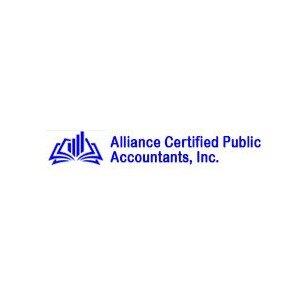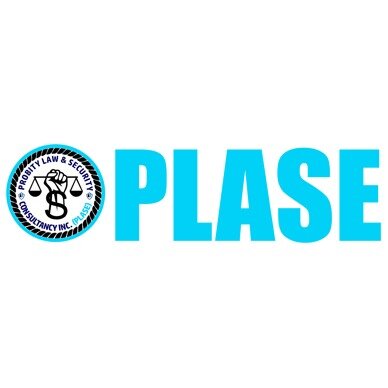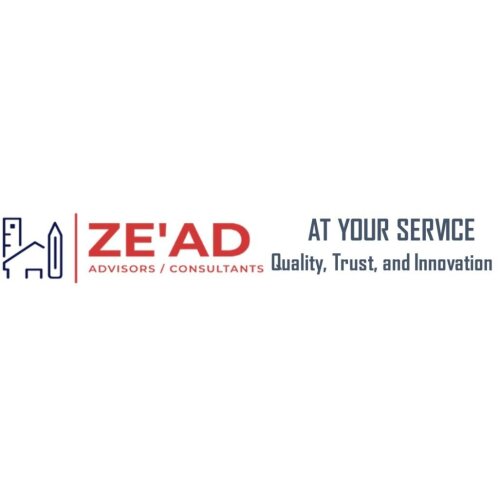Best Energy Regulatory Law Lawyers in Liberia
Share your needs with us, get contacted by law firms.
Free. Takes 2 min.
Or refine your search by selecting a city:
List of the best lawyers in Liberia

Alliance Certified Public Accountants, Inc. (Alliance CPAs, Inc.)
15 minutes Free ConsultationAbout Energy Regulatory Law in Liberia
Energy Regulatory Law in Liberia governs the generation, transmission, distribution, and sale of electricity and other energy sources within the country. This branch of law aims to ensure that energy services are reliable, affordable, and meet environmental and safety standards. Liberia's legal framework for the energy sector has evolved in recent years due to reconstruction efforts and the need for increased private investment following years of civil conflict. The Liberia Electricity Regulatory Commission (LERC) acts as the primary regulator, overseeing the licensing of operators, ensuring consumer protection, setting tariffs, and promoting sustainable development of the energy sector.
Why You May Need a Lawyer
Engaging a lawyer who specializes in Energy Regulatory Law in Liberia may be essential for several reasons:
- Navigating complex licensing requirements for establishing or operating energy facilities.
- Handling contract negotiations with suppliers, distributors, or the government.
- Advising on compliance with both national and international environmental standards.
- Assisting with tariff and rate disputes with the Liberia Electricity Regulatory Commission.
- Representing clients in administrative hearings or court proceedings involving energy sector disputes.
- Helping foreign investors understand local content regulations and investment incentives.
- Addressing issues related to land use, rights of way, and environmental impact assessments for energy projects.
Local Laws Overview
Liberia's primary legislation governing the energy sector is the Electricity Law of 2015, which paved the way for the creation of the Liberia Electricity Regulatory Commission. Key aspects of the regulatory framework include:
- Licensing: All entities generating, transmitting, distributing, or selling electricity must be licensed by the LERC.
- Tariff Regulation: The LERC sets and approves tariffs to ensure fair pricing while balancing the needs of consumers and investors.
- Consumer Protection: Laws require the provision of safe, reliable, and affordable access to electricity and outline procedures for lodging complaints.
- Renewable Energy Promotion: The policy framework encourages the integration of renewable energy sources to improve access and sustainability.
- Environmental Oversight: The Environmental Protection Agency (EPA) requires impact assessments for new energy projects to safeguard the environment.
- Foreign Investment: Liberia offers incentives and legal protections for foreign investors in the energy sector, but compliance with local content and labor laws is required.
Frequently Asked Questions
What is the role of the Liberia Electricity Regulatory Commission?
The Liberia Electricity Regulatory Commission is responsible for regulating the generation, transmission, distribution, and sale of electricity. Its duties include licensing energy operators, setting tariffs, protecting consumer interests, and ensuring the reliability and sustainability of the energy supply.
Who needs a license to operate in the energy sector?
Any individual, business, or organization that intends to generate, transmit, distribute, or sell electricity in Liberia must obtain a license from the Liberia Electricity Regulatory Commission.
How are electricity tariffs set in Liberia?
The LERC reviews and approves tariff applications to ensure pricing is fair, cost-reflective, and supports both infrastructure investments and consumer affordability.
What are the main laws governing energy in Liberia?
The key law is the Electricity Law of 2015, supported by regulations issued by the LERC and environmental requirements from the Environmental Protection Agency.
Can foreign investors participate in Liberia's energy sector?
Yes, foreign investors are encouraged to participate and can benefit from investment incentives. However, they must comply with Liberian laws, including licensing, environmental reviews, and local content requirements.
How are disputes in the energy sector resolved?
Disputes are primarily handled through administrative processes with the LERC. If issues cannot be resolved administratively, they may be taken to Liberian courts for adjudication.
Are there regulations for renewable energy in Liberia?
Yes, Liberia’s energy policy framework supports renewable energy development. Provisions include incentives for investment and requirements for environmental impact assessments.
What consumer protection rights exist in Liberian energy law?
Consumers are entitled to safe, reliable, and affordable energy service. They may file complaints with the LERC if operators fail to meet service standards.
What environmental requirements apply to energy projects?
Energy projects must undergo an Environmental Impact Assessment and secure approval from the Environmental Protection Agency to ensure compliance with Liberian environmental standards.
How can I apply for an energy sector license?
Applications for licenses can be made directly to the Liberia Electricity Regulatory Commission. Requirements typically include technical and financial details, proof of environmental approval, and business registration documents.
Additional Resources
If you require further information or wish to consult directly with relevant organizations, the following resources may be helpful:
- Liberia Electricity Regulatory Commission (LERC): The primary government body regulating the electricity sector.
- Ministry of Mines and Energy: Responsible for national energy policy formulation and implementation.
- Environmental Protection Agency of Liberia: Oversees environmental permitting for all energy projects.
- National Investment Commission: Provides guidance to local and foreign investors in the energy sector.
- Local and international law firms: Offer specialized legal advisory services in Energy Regulatory Law.
Next Steps
If you need legal assistance in the field of Energy Regulatory Law in Liberia, consider taking these steps:
- Gather all relevant documents related to your case or area of concern, such as contracts, notices, or regulatory correspondence.
- Identify your specific needs or questions, such as licensing, permits, dispute resolution, or investment advice.
- Consult with a qualified lawyer who has experience in Liberian Energy Regulatory Law to assess your options and receive tailored advice.
- Contact relevant agencies such as the Liberia Electricity Regulatory Commission or Environmental Protection Agency for official information or clarification.
- Stay informed about any regulatory updates or changes in the energy sector that may affect your situation.
Taking the time to consult with a knowledgeable legal professional can help you navigate the complexities of Liberia’s energy laws and protect your interests as a consumer, investor, or energy provider.
Lawzana helps you find the best lawyers and law firms in Liberia through a curated and pre-screened list of qualified legal professionals. Our platform offers rankings and detailed profiles of attorneys and law firms, allowing you to compare based on practice areas, including Energy Regulatory Law, experience, and client feedback.
Each profile includes a description of the firm's areas of practice, client reviews, team members and partners, year of establishment, spoken languages, office locations, contact information, social media presence, and any published articles or resources. Most firms on our platform speak English and are experienced in both local and international legal matters.
Get a quote from top-rated law firms in Liberia — quickly, securely, and without unnecessary hassle.
Disclaimer:
The information provided on this page is for general informational purposes only and does not constitute legal advice. While we strive to ensure the accuracy and relevance of the content, legal information may change over time, and interpretations of the law can vary. You should always consult with a qualified legal professional for advice specific to your situation.
We disclaim all liability for actions taken or not taken based on the content of this page. If you believe any information is incorrect or outdated, please contact us, and we will review and update it where appropriate.
Browse energy regulatory law law firms by city in Liberia
Refine your search by selecting a city.











